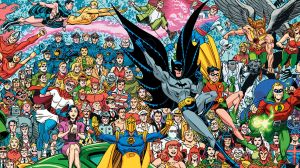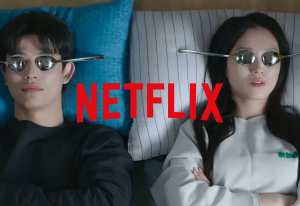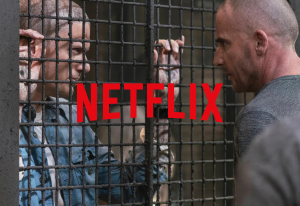For the better part of a decade, the promise of a DC cinematic universe was squandered by a series of misguided decisions from Warner Bros. The result was a clunky and disconnected franchise filled with critical and commercial flops, the result of excessive executive meddling and abrupt strategic shifts. That era of disappointment finally seemed to end when James Gunn and Peter Safran were appointed co-heads of the new DC Studios, tasked with building a cohesive universe from the ground up. The initial projects under their leadership inspired confidence. Creature Commandos debuted to near-universal praise from critics, who celebrated it as a perfect appetizer for the DCU’s lived-in world of gods and monsters. This success was followed by Superman, a critical and commercial juggernaut that became widely beloved as one of the best iterations of the Man of Steel.
Videos by ComicBook.com
The second season of Peacemaker began as the third consecutive triumph for Gunn and the new DCU, delivering a deeply emotional story that explored complex themes of identity. The goodwill built by these initial successes suggested that the promise of a stable, high-quality DC Universe was finally being realized. However, the widely disliked and narratively unsatisfying ending of Peacemaker‘s second season has shattered that momentum. This creative misstep has reintroduced a familiar sense of doubt, revealing that the future of the DCU is far from assured.
Why Is the Season 2 Finale of Peacemaker So Problematic for the DCU?

The new DCU was founded on the explicit promise that it would not be the Marvel Cinematic Universe. Co-head Safran stated plainly they would “never going to put a project into production before the script is right,” a “story first” philosophy designed to ensure every film and series was a satisfying narrative in its own right. This was a direct response to the audience fatigue generated by the MCU’s relentless — and often hollow — franchise-building. The finale of Peacemaker Season 2, however, aggressively betrays this foundational principle. Instead of resolving the season’s central conflict, the episode abandons its own plot threads to function as a glorified trailer for future projects, sacrificing its narrative integrity for the purpose of generating hype for Man of Tomorrow. This is the exact formula that has drawn criticism to Marvel, making the DCU’s first major cliffhanger feel like a return to a flawed model.
The finale of Peacemaker Season 2 also indicated that co-head Gunn is stretched dangerously thin. In the span of just over two years, he has served as the primary writer on all episodes of Creature Commandos, written and directed the blockbuster film Superman, and written all episodes of Peacemaker‘s second season while also directing a significant portion of them. This staggering creative output was accomplished while simultaneously fulfilling his duties as the co-CEO of DC Studios, a role that requires him to plan the franchise’s decade-long story arc, oversee the development of all other projects, and approve scripts from other creative teams. This workload is not sustainable, and with Gunn already confirmed as the writer and director for the upcoming sequel Man of Tomorrow, there is no sign of it letting up.
In retrospect, a creative fumble like the ending of Peacemaker Season 2 was almost inevitable. When a single creator is juggling that many high-stakes responsibilities, the ability to maintain objective quality control on every single front is compromised. It becomes exceedingly difficult to view a project as a singular piece of art when you are also the architect responsible for how it connects to the next five projects in the pipeline. As such, the episode’s failure is a critical warning sign that the DCU’s reliance on one man to do the work of an entire studio is already leading to a sacrifice in quality.
The Success of the DCU Will Be Cemented in 2026

Despite a somewhat successful first year, the long-term viability of the broader DCU remains an open question after the Peacemaker Season 2 finale. The year 2026 is poised to be the franchise’s make-or-break moment, as it will deliver the first wave of films and series from other creators, revealing whether the new studio’s high standards are truly sustainable. The most crucial test will be Supergirl: Woman of Tomorrow, scheduled for release on June 26, 2026. Tasked to director Craig Gillespie and writer Ana Nogueira, the film adapts Tom King and Bilquis Evely’s celebrated comic series, a tonally complex space epic that doubles down as a challenging character study of a jaded hero. As the first A-list solo film following Gunn’s Superman, its performance will be the primary indicator of whether the DCU’s flagship quality and hopeful-yet-grounded tone can be successfully replicated and evolved by other hands.
Other DCU projects slated for 2026 are designed to prove the viability of its broader creative gambles. The film Clayface represents a significant risk, testing the “good script above all” philosophy by betting that a character-driven story can elevate a B-list villain into a mainstream cinematic draw. Further expanding the franchise’s range is the HBO series Lanterns. Helmed by a prestigious team that includes showrunner Chris Mundy (Ozark) and writer Damon Lindelof (Watchmen), the series is described as a True Detective-style mystery. Both projects are a vital test of the DCU’s tonal flexibility, promising mature storytelling completely removed from Gunn’s signature comedic style. The combined reception of this diverse slate will deliver the definitive verdict on the health of the entire enterprise.
Did the finale of Peacemaker Season 2 shake your trust in the DCU’s future? Leave a comment below and join the conversation now in the ComicBook Forum!









